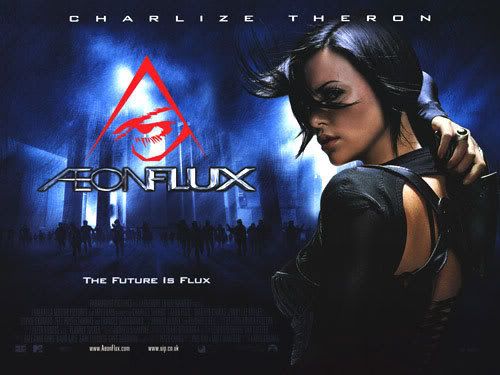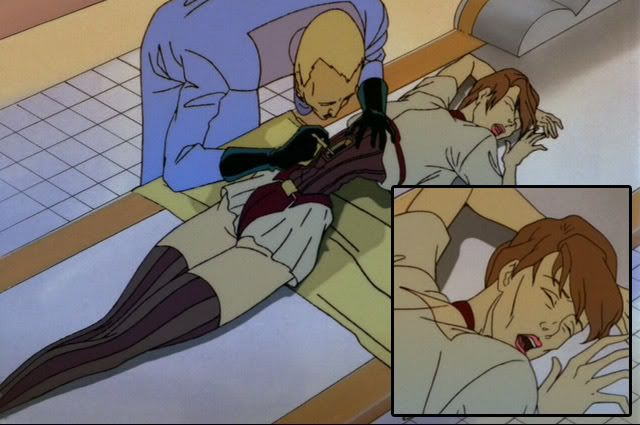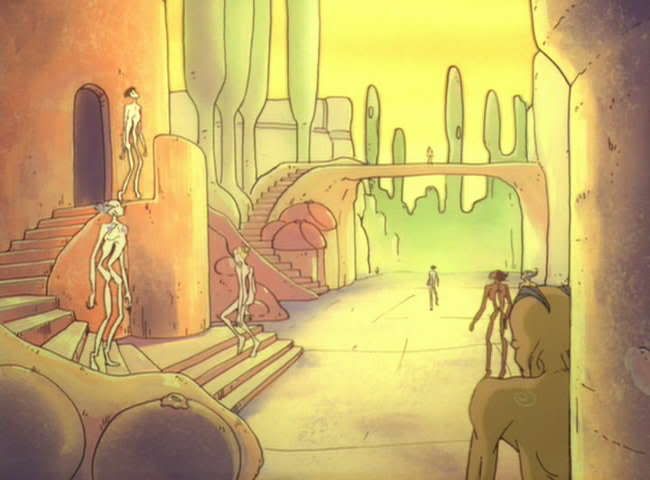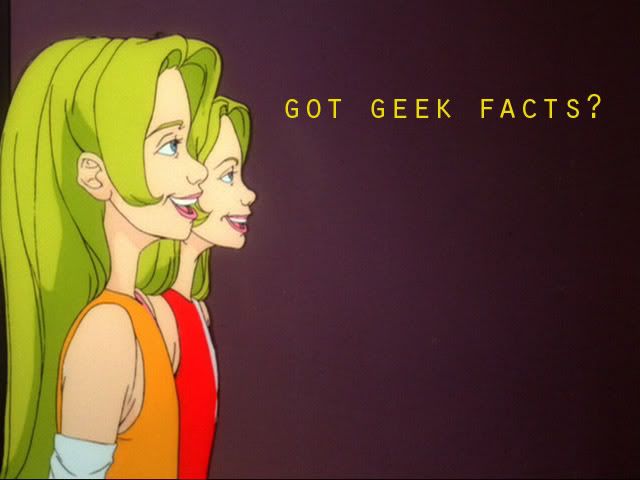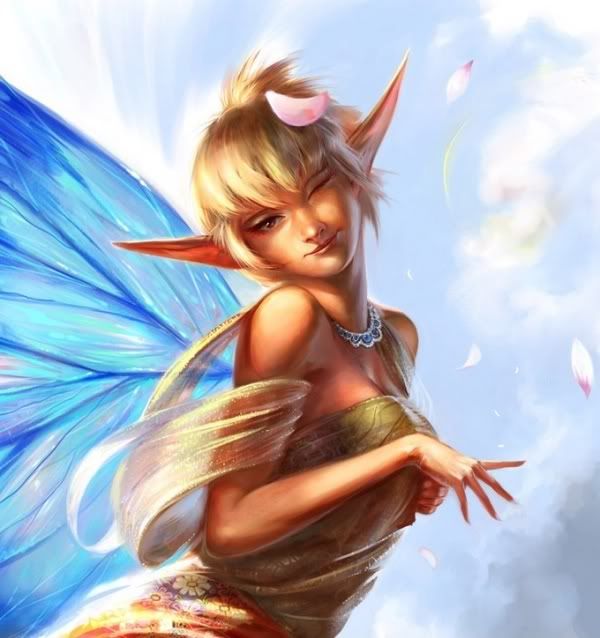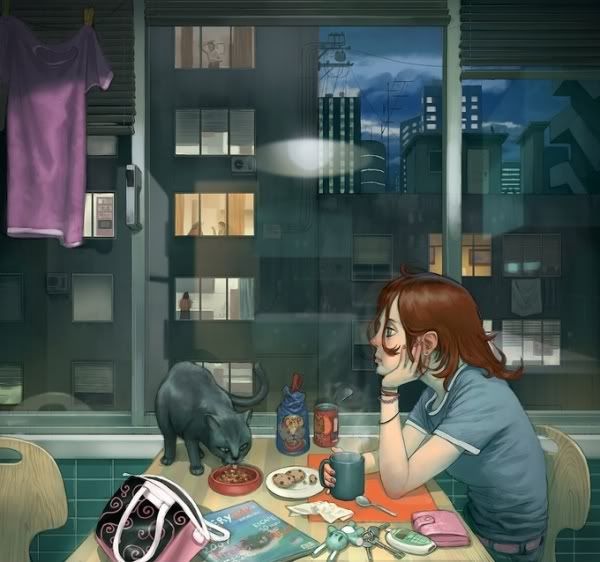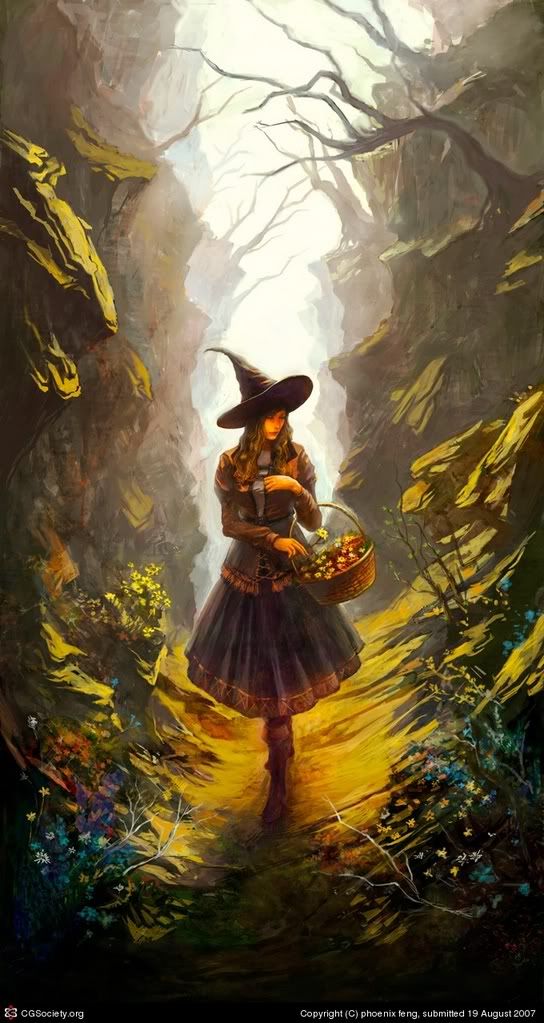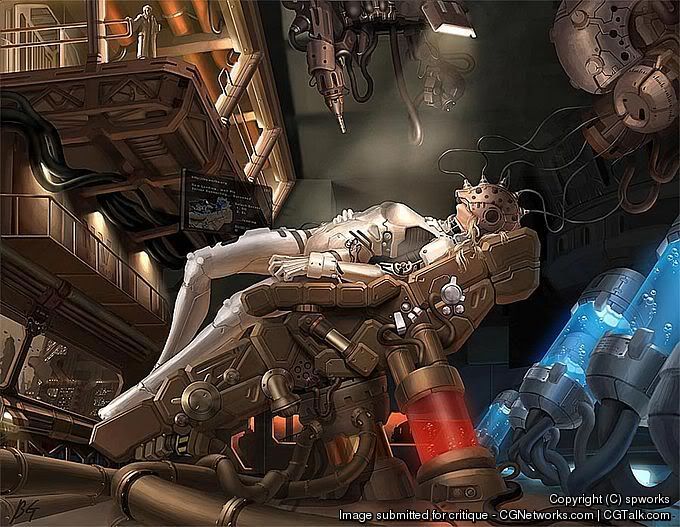StudioMMG greets its tiny audience a very warm and merry Christmas and all that! Although it certainly was a trying year, looking back, it was still pretty damn fun! May the New Year bring more opportunities to us all!
Expect more "quality content" and other great and interesting stuff in 2008!
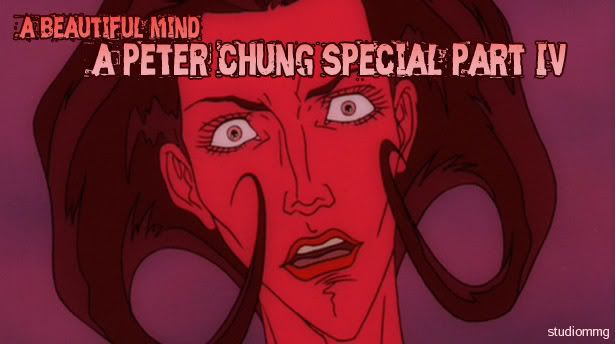 This is the fourth and final feature on the amazingly creative Peter Chung. It was a fairly long and laborious ride, but overall his take on the creative process certainly opened my eyes. (More so than any Creative Director guy actually) If you are sick of hearing about this guy and how he’s really just an overrated fop, then I say to you "
This is the fourth and final feature on the amazingly creative Peter Chung. It was a fairly long and laborious ride, but overall his take on the creative process certainly opened my eyes. (More so than any Creative Director guy actually) If you are sick of hearing about this guy and how he’s really just an overrated fop, then I say to you "
You know what’s funny? A few weeks after writing the Peter Chung Specials, I actually found the Aeon Flux first season, 3-Disc DVD set! I literally froze for a few moments before I realized that this was real. Without hesitation, I bought the damn thing and whaddaya know, they don’t make shows like this anymore! It’s not Japanese anime, nor was it run-on-the-mill Saturday morning American animation, it was like that time I watched the original Heavy Metal animation. It was surreal, addictive and oftentimes over-the-top. Definitely an acquired taste.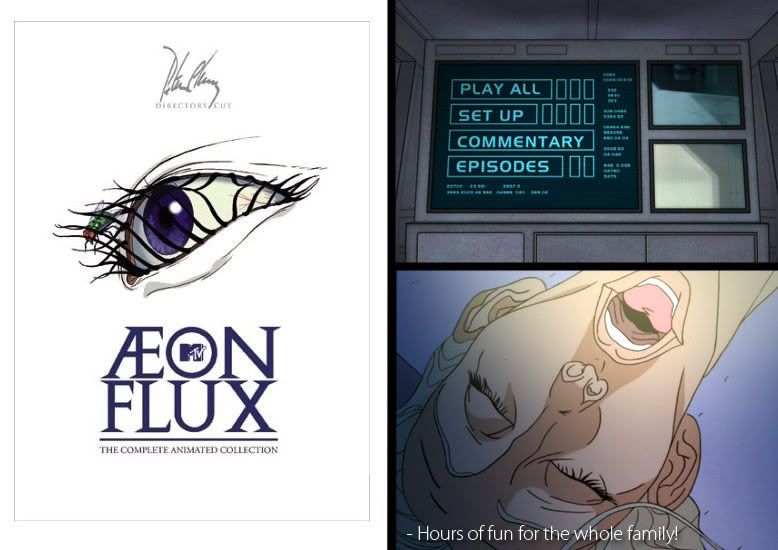 It sure beats the hell out of watching overpriced, uninspiring oddities like the Robotech: Shadow Chronicles Special Edition DVD set.
It sure beats the hell out of watching overpriced, uninspiring oddities like the Robotech: Shadow Chronicles Special Edition DVD set.
One thing that really attracted me was Mr. Chung’s style. It’s hard to say who exactly are his influences, so lets just say that his style is “inspired”. (Where “Inspired” doesn’t necessarily mean bad copy of the original source) It’s different, and I like it. A lot. Here are some excerpts from various interviews around the net…
Morphizm: What would you say that style is? How did you arrive at it?
Peter Chung:
Well, I don't know if it's right for an artist or designer to comment on how his own style came about. I know that sounds like a copout, but in a way the ideal is to try not to achieve a style but rather approach everything in a way that feels most natural to yourself, and that ends up being your style. You end up with these labels after the fact. It's a very complex process.
My thoughts:
Peter has a thing about labels, which you will soon find out.
Peter Chung:
Yes, you obviously pick up points from artists whose work you like, but that's just half of it. The other half of it is avoiding formulas used by designs you don't like. And, in a way, that's a lot harder to do that it sounds. It's very hard not to show signs of influence. It's why so many animators draw in such similar styles. It's even harder to shed yourself of those influences.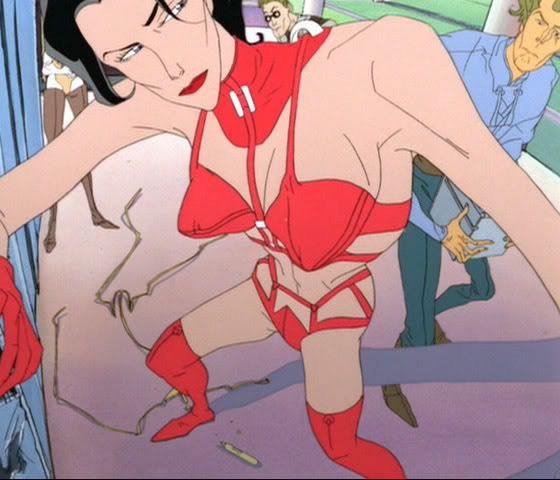 Morphizm: (A different interviewer)
Morphizm: (A different interviewer)
It also helps to know what an artist has done throughout his career, not just the stuff he or she did that was popular. The idea that you were partially behind the design of Rugrats seems to irrevocably change the idea of a "Peter Chung" aesthetic, one that seems mostly informed by Aeon Flux. Just as knowing, as many don't, that much of popular Japanese animation was informed by Walt Disney.
Peter Chung:
Right, through Osamu Tezuka. I would say that right now a lot of Japanese animation has become very incestouos and inbred. It's become so much like animation of animation. Know what I'm saying?
Morphizm: A copy of a copy.
Peter Chung:
Right, in the same way some Cartoon Network shows, like Powerpuff Girls and Dexter's Laboratory, take that retro Hanna-Barbera style to the extent that it looks like animation made by people who spent their childhoods watching animation.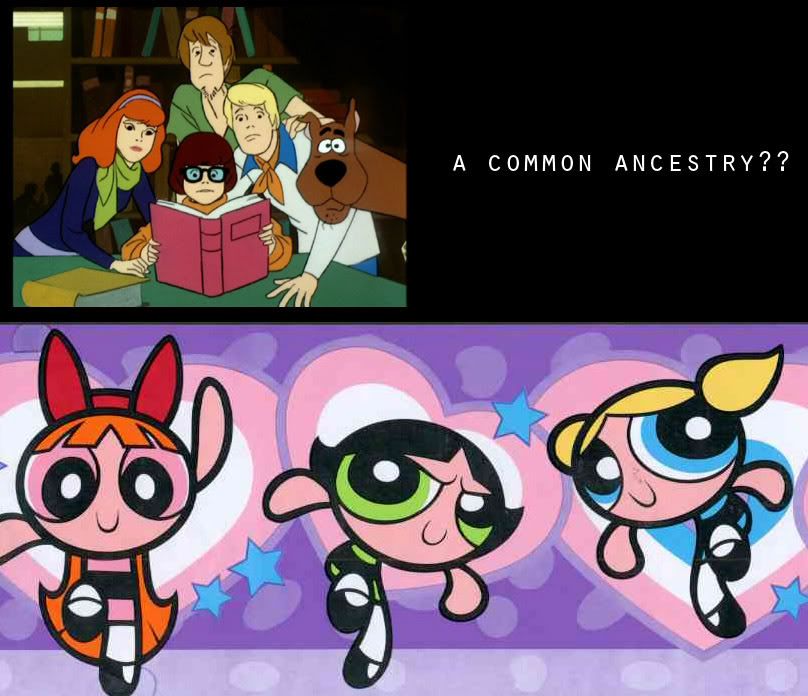 My thoughts:
My thoughts:
Cool. I didn’t know about that! Well, some of it at least. It seems like I’m the kind of guy that has to have every aspect explained to him despite knowing that stuff already. I’m hard headed that way.
In any case, I will digress and point out that a lot of artists nowadays, especially those involved in the comics industry, have shown an increasingly manga-like influence. The Japanese manga-style has certainly become the style-du-jour for many young and impressionable talents. Even the animated stuff we see on TV now has characters looking more and more like anime hybrids.
With such a strong Japanese influence pervading the art community, I really do wonder what the future holds. Will young talents pursue their own style, or will there everything be soulless ‘manga-inspired’ or ‘manga-influenced’ work?
What am I saying?? I AM one of those young artists who have conformed to the conventions of manga visual aesthetic! But I guess it had more to do with me getting into this art biz by drawing anime fanart...
Seriously though, it takes real talents like Peter Chung and even highly acclaimed artist Ashley Wood to go beyond the blah-ness of the so-called stylistic-standards today and forge a style of their own. It’s a wonder the Aeon Flux aesthetic still seems so fresh even today despite having been made way back in the 1990’s.
The next question is an interesting one… About how artists lament about the “suits” and public perception of animation. (Reference taken from highly entertaining HBO’s series, Entourage)
 That damn Mouse has truly changed the way people view animation in the Western
That damn Mouse has truly changed the way people view animation in the Westernworld. American animation is still seen as something "for the kids", in the same way anime
is still considered "kiddie-nonsense" thanks to shows like "Pokemon".
DR: (A Different Interviewer)
Do the studios treat animation differently these days, or do they still have the attitude that it's something for kids?
Peter Chung:
It's strange in my case because I do a particular kind of animation, which is unusual, at least in this country [USA]. Yes, I find it very difficult.
I'll give you an example. I wanted to make Aeon Flux as an animated movie, which seemed to make the most sense because the idea behind the show, and the character originally, was to do things that you couldn't do in live action. For example, making her look the way she does and having the characters dress the way they are. It's something I wanted to do in animation, but I don't know if I'd do that in live action - you couldn't get away with it.
That was very frustrating for me, because they wanted to do an Aeon Flux movie, but they wanted to do it live action and change it to the point where it wasn't that close to the source material any more.
My thoughts:
Anyone know what happened to the Aeon Flux movie? Yeah, can you believe it? I talk about Peter Chung for four times in this stinkin’ blog and I still haven’t seen that movie-they-call-a-travesty. Oh well. I think the biggest travesty now is that when Aeon Flux is now associated with Charlize Theron. While not really a bad thing, it certainly made some people think that the original source material might’ve sucked as bad as the film. Aaaaaaugh!
Peter Chung:
In that sense, yes. I think that there's not really an understanding on the part of the studios on what the advantages are of using animation. All they tend to see are the disadvantages - like it takes a lot of time and maybe has less appeal to a wider audience - although it's strange that they'd make that last argument, because a lot of the top grossing films are animated movies.
DR:
It doesn't seem to be the rule when you take a live action movie and create an animated spin-off, though. Animatrix and Dark Fury both seemed to work well, and Genndy Tartakovsky's Star Wars: Clone Wars animated series was impressive.
My thoughts:
”Appeal to a wider audience” is a phrase that I have learned to love and loathe at the same time. When it’s applied, it can cause uproar among fans in video game franchises like Starwars Galaxies and about a dozen other niche gaming properties.
When done wrong, you’d have forgettable features like the uninspiring Shadow Chronicles, a direct continuation of the 1985 Robotech series or even the Aeon Flux film. (Sorry, I can't resist)
When done well, it can bring otherwise “closet” interests like Transformers, X-men and Spiderman to worldwide acclaim. What exactly makes something appeal to a wider audience? Watch this blog and find out!
Right now, lets find out what Peter Chung thinks about… dark dystopian futures!
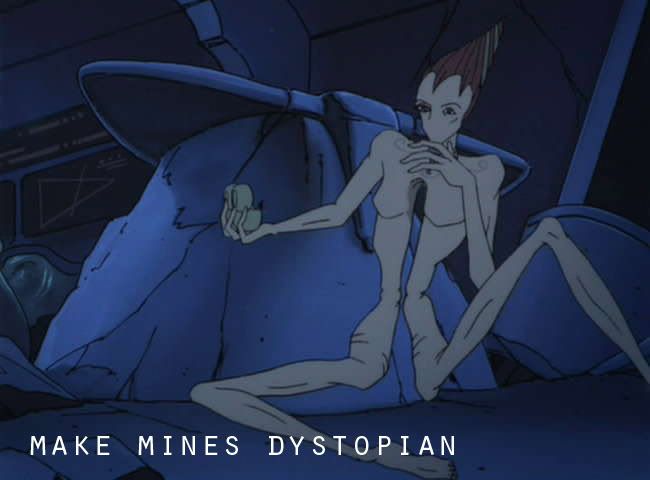 DR:
DR: In Aeon Flux (the series) we are offered yet another dark, miserable future for mankind. Why do you think it is that writers always seem to picture the future as a bleak place?
Peter Chung:
I've found this myself. I think that movies in general tend to try to convey as much as possible by amplifying contrast in every aspect. That's why movies are always filled with sex and violence - much more so than people's ordinary lives. I think it amps up the level of tension in a movie. I see it being done for that reason. You want to create an environment which is going to be more dramatically compelling.
Most of the movies that we see made about the past are also fraught with lots of violence. We see endless scenes of people fighting each other with swords [laughs]. It seems like most historical movies are focused on that stuff, whereas ordinary life wasn't like that - that was the exception.
My thoughts:
Escapism. Whatever it takes to make us forget about the insanity of daily life. Still, it doesn’t explain the success of game franchises like The Sims…
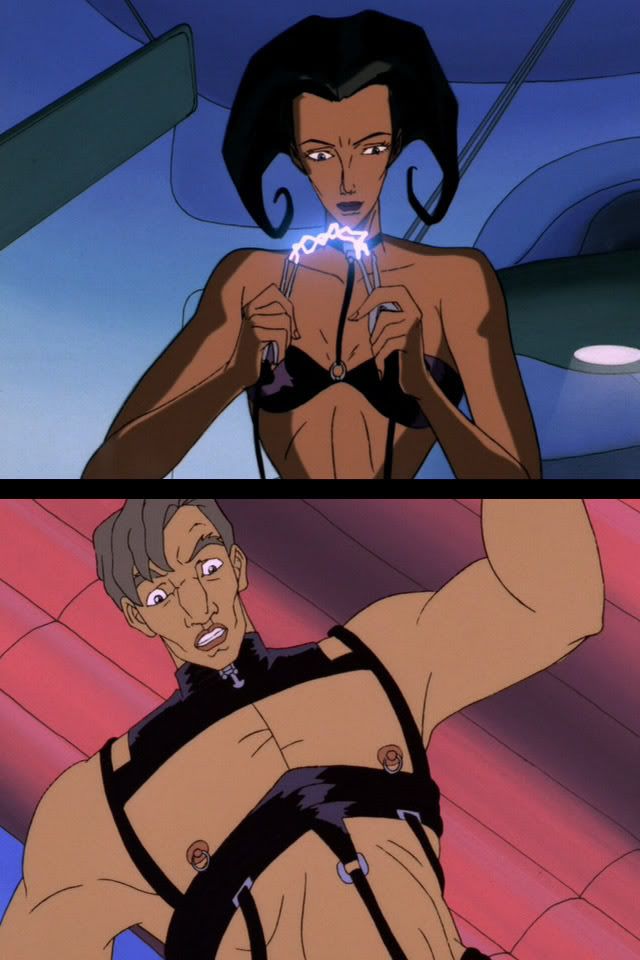 Yes! I think a Hollywood film with scenes like this would click with the moviegoing
Yes! I think a Hollywood film with scenes like this would click with the moviegoingpublic! (Seriously, I think it would - sorta like Ang Lee's Lust, Caution...)
Moving in a little more about Hollywood, and how the film adaptation of Aeon Flux has reaffirmed Mr. Chung’s stance on Hollywood and how iconic characters and images clash with reality.
DR:
Why do you think that Hollywood seems to have a habit of getting it wrong when transforming comic book characters into live action movies? And do you think that the live action Aeon Flux movie fell into a lot of those traps?
Peter Chung:
Yes, it definitely fell into a lot of those traps. I think they tend to take things too literally - which when you're doing something in comic book or animation, you are really working on a much more mythical level. And you can't help it because drawings are, in a sense, symbols.
The way superheroes characters are dressed, for example, has a lot to do with creating an iconographic image, but if you literally had somebody dress up like that it would look ridiculous.
The way around that is to create a whole world in which everything is portrayed in that iconic way. And the ones, I think, that fail are those that plop this iconic character in a very realistic, every day environment. And that's kinda goofy to me.
My thoughts:
I did hear from renowned comic-guy Scott McCloud lament at how the comic industry had to rely on the success of its Hollywood industry to achieve a wider acceptance and appeal. The comic medium, from the power of its narrative, to its iconographic images is both powerful and beautiful, and sadly under appreciated and even looked down upon to this day. Lets continue:
DR:
CGI is still not at a level where it's believable yet, but when it is do you think that this would help animated movies to be better accepted by the studios?
Peter Chung:
No, because it's not about realism for me. I think that the comics that are the least successful, for me anyway, are the ones that are painted and rendered and made to look like scenes that have practically been photographed. I find those the most distracting. The more you try to make them realistic, the more preposterous it becomes. Keeping the graphics very stark and iconic I think works a lot better.
Peter Chung:
If you compare Jack Kirby's superheroes to Alex Ross's... With Alex Ross I'm always aware of some model posing in his studio [laughs] wearing some goofy costume. Whereas, with the Jack Kirby drawing, the drawing is the character. It's not a drawing of a guy dressed up as a character, the drawing is the character. That's the strength of the medium.
If you look at a Pixar animated film the characters are what you see on the screen. What you see on the screen - it's not an actor playing the character - that's the character. That's the advantage of animation over live action.
My thoughts:
Ever since I’ve read that statement by Mr. Chung, I haven’t looked at Alex Ross’ covers the same again. Okay to be fair, Mr. Ross’ art looks amazing at times, the comics themselves are beautifully painted, but it’s those freakin’ covers that are makin’ me laugh.
We go now to what he thinks about Hollywood – and Mr. Chung’s article which was written way back in 1998 – and how you just can’t make a good comic book film.
Morphizm:
Has there been anything since that 1998 article was written that you felt worthy to add to the list?
Peter Chung:
Actually no. (Laughs). Not in the area of comics at least.
Morphizm:
What about Sin City?
Peter Chung:
Sin City was a faithful adapatation of a comic book, but whether or not it was a good film depends on how you liked the comic. But I think it did a lot of things that are necessary in the comic book, but not in the film. Like the voice-over narration, for example. Where the characters are constantly describing stuff you're actually seeing happen. Which became irritating after a while.
 "And then I looked at him, and he asked me what I thought about his
"And then I looked at him, and he asked me what I thought about hisplan to kill that yellow bastard. I nodded, trying to tell him to shut the hell up cuz'
the bastard just wouldn't stop talking"
Morphizm:
They were going for the film noir vibe.
Peter Chung:
That's another thing, which is kind of a pet peeve of mine. Like I was saying earlier, you don't set out to make something in a certain style, whether its film noir or whatever. When the original filmmakers were making film noir, they didn't know what film noir was. That was a term a French critic slapped on the films later on. Those artists were making films that were based on what they observed and the evnironments they lived in.
Morphizm:
But these things become part of the cultural grammar.
Peter Chung:
Right, they do. But you shouldn't set out to make things that way. Then it's no longer authentic.
My thoughts:
Again, Mr. Chung says that thing about the labels and stuff! I think its brilliant! Don’t approach your work saying “it’s going to be a Starwars / Battlestar Galactica-ripoff” or something. That’s probably why I love shows like “Firefly” – it doesn’t really go around saying “Hey! Look at me! I’m a grand space opera in the vein of Starwars and Star Trek!” (As the Robotech: Shadow Chronicles film has proven) It’s a cool show about “cowboys” in space. Try to classify that with your cultural grammar please. As Mr. Chung said earlier about his artistic style, you go make something that just comes natural. Whatever fits the story / narrative.
Now here’s the real interesting part of these interviews – it’s when Peter Chung talks about geek facts. It sorta made me rethink about the way I looked at certain science fiction franchises…
DR:
Stylistically there seems to be quite a lot of retro elements in the design of Aeon Flux. Trevor's lab has large levers with big yellow knobs on them that look like they belong in the '60s Batman TV show. Was that your intention from the start, to give the show a retro feel?
Peter Chung:
Well, I never really thought of Aeon Flux as being set in the future. It was more like an alternate present. I was really interested in talking about the world we live in. I made a deliberate decision not to say how many years in the future it was set.
I think when you set it in a specific time and place then it becomes less relevant. You can say: "It's their world, their time and their problem." Whereas I wanted to talk about our world and our problems.
My thoughts:
Really?? Hmm… Is that why the stories of Aeon Flux seemed… more involved that some stuff I’ve watched over the years? Very interesting.
Peter Chung:
Going back to the mythical level that we were discussing earlier, it's the structure of what's happening - the relationship between the characters and the ideas - not the specific date and location and so forth.
I think a lot of science fiction on film and TV falls into that trap of trying to treat their stories literally. Then you tend to get caught up in a lot of arcane trivia about that world and it seems that people tend to focus on those things. Like, where are the Romulan's from? Or the fact that the Romulans are more technically advanced than the Klingons - and things like that. And Trekkies are obsessed with things like that. And this is the point. All that stuff is fictional, it has nothing to do with anything. You get obsessed with these fictional details, which are really, ultimately, arbitrary.
My thoughts:
Whoa! Slow down there Peter! I think I get what you’re trying to say here! Crap… It sorta makes you laugh. Once upon a time I was totally involved in the 1985 animated series Robotech and I would see people try to explain the most insane things like how a weird flower is able to power spaceships and other high-tech stuff. Then these crazy debates would erupt, without ever reaching a conclusion. People lose focus on the story, the characters; the things that matter – people get too mixed up with what is essentially ‘fanwank’. (Discussed earlier in the blog many times)
Here’s another interview about the same topic:
Morphizm:
Do you think it was a mistake to set the film on a specific date in the future?
Peter Chung:
When you nail those things down, the film becomes locked in them and starts to lose its symbolic value. A lot of science-fiction films make the mistake of taking their premise literally rather than metaphorically. The thinking is that it will have more relevance if you nail it down, that it will become unambiguous. But I think the opposite effect is achieved. The more you're able to project your own world upon the work, the more power it has. Whereas if you nail down the time and place, the more you can say, "Oh, this is a story about their world that takes place in that time and that place. It has nothing to do with us."
My thoughts:
Yes, I guess a lot of us hate uncertainty; People hate ambiguity. But that is also why I stuck with shows like Robotech. Look at Starwars and Star Trek – literally every detail of their galaxy has been explained.
I love this comment "The more you're able to project your own world upon the work, the more power it has."
Remember this post about Half-Life? The world 'projected' events in newspapers, radios and posters. Environmental storytelling made the game and piecing the overall story arc together even more satisfying than having everything offered to you in some talky, overlong prologue.
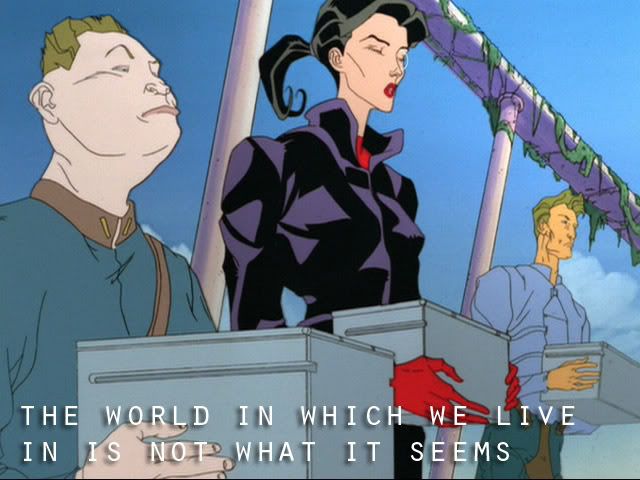 Morphizm:
Morphizm: How would you describe the world that this movie takes place in? As well as the animated version, if you find serious discrepancies.
Peter Chung:
The world that the movie takes place in is narrowly defined. The majority of the population has been wiped out and the only survivors of Earth are restricted behind this walled city ruled by Trevor, which was never the backstory of the animated series, where it was implied that there was a wider world existing beyond those boundaries. I'm not going to talk too much about the world of the movie, but I'd just expand on that idea that these stories are more meaningful the more you meet them with the language of metaphor.
My thoughts:
In a way, Robotech, being a much more niche franchise, greatly benefited from an almost complete lack of “Geek Fact Book” merchandising (compared to say, Starwars or Star Trek, which has “Geek Fact Books” up the wazoo).
Note: Geek Fact Books could be anything from Role-playing-game Sourcebooks, to Official Companion Guide Books, to various comic books and novels.
Over the years, Robotech fans had to come up with their own explanations for events that happened during the series’ 85-episode story arc, since many of the “official sources” always came up short, or were simply too inaccurate. It was only when the new Creative Director came in and presented his own interpretation as ‘fact’ did the show seem to lose its magic. The series’ creative power was taken away.
I guess what I’m trying to say is, Robotech should never really have taken the Starwars-approach. It relied on so many unexplained metaphors and events that it was best to leave it up to the audience’s imagination and interpretation. A different approach was required for the series… but that opportunity was sadly squandered over the years with retreads and reprints.
Behold, you have witnessed the (to loosely use that term again) power of a multi-layered narrative!
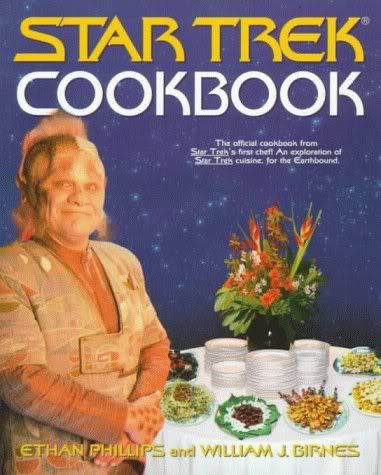 If your favorite science fiction/fantasy series ever plans
If your favorite science fiction/fantasy series ever planson making one of these to "enrich the universe", tell the
franchise/license owners to go f**k themselves.
The interviewer asked a follow-up question about the elements we just discussed... It seems that studio execs actually demanded Peter Chung to add these “geek facts” to his work. You know, arbitrary stuff like a definite timeline, a complete history of the Tirolian / Forerunner / Alien Overlord empire, all that s**t.
DR: Do you find that when you are selling an idea to a studio head, that those are the sorts of elements that they demand of you too?
Peter Chung:
Well... they do. And I think it's a big mistake. They think, for example, that an audience needs that in order to feel grounded. And I think that a lot of viewers maybe do need it, which is probably why a lot of people didn't understand Aeon Flux. But I think that the people that do appreciate it do so for the reason that it's not about creating some fictional world. It's really about projecting ideas that are taken from our world. It's really talking about life as we live it now, amplified.
My thoughts:
That is really, quite beautiful, Mr. Chung. I never really thought of it that way until now. The thing is, I myself like either approach to storytelling. Creating fictional worlds with complete history can be a good thing when done well. Look at works of the great fiction writers like Tolkien, or Prachett, or Herbert. To this day, their rich fictional worlds continue to offer the disillusioned masses a great way to escape this reality (A further study of this is required).
However, It’s good to see that Mr. Chung’s narrative approach reaffirms my affinity for the so-called multi-layered narrative.
So there you have it, my dear Void. I can’t say enough praises to this guy, so I won’t. I’m pretty sure there are other artists who are equally as compelling as our boy here, and I look forward to getting to know em’ better. But now, with all the Peter Chung madness behind me:
A Beautiful Mind: Peter Chung Special Part 2
A Beautiful Mind: Peter Chung Special Part 3
I asked myself, how does one establish some kind of meaning, feeling or significance in art? As an artist, do you have to some kind of background in Psychology or Philosophy to achieve some kind of emotional connection with your audience???
No, and no (but a little knowledge goes a long way)! I've said it once, I'll say it yet again - the biggest advantage you'll ever get in figuring out what the heck I'm yapping about is to have a good understanding of the basics of art. Okay, let me be more specific - read this freakin' post.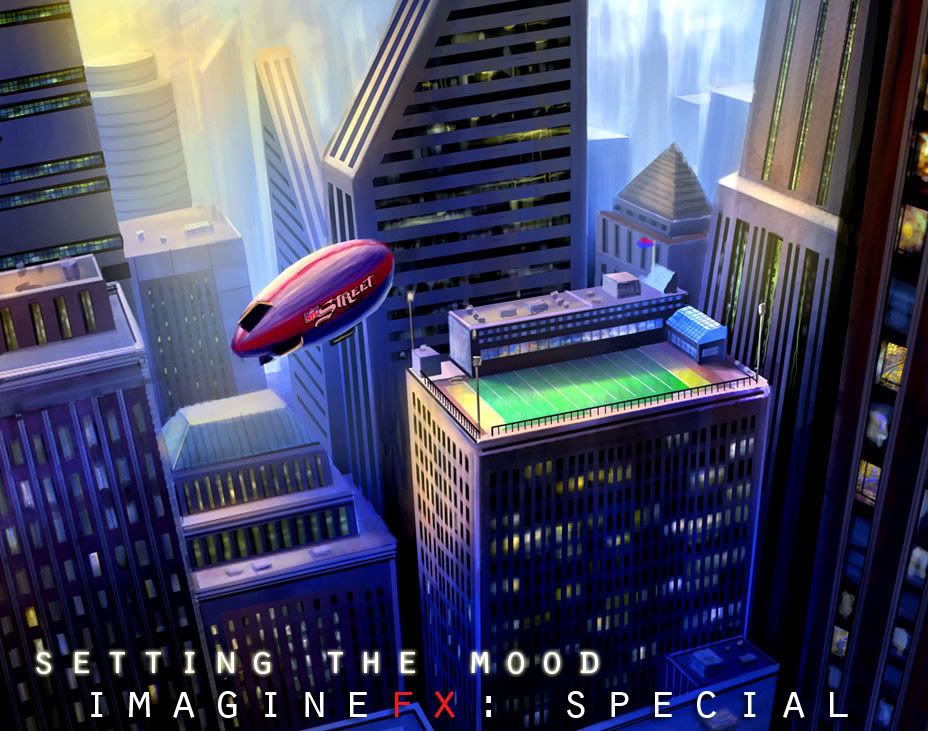 The whole point of this exercise is to make me (and maybe you ) learn how to capture a particular mood thereby achieving an emotional connection with the viewer. ImagineFX.com’s got some great ideas that would help me (and maybe even you) in achieving this.
The whole point of this exercise is to make me (and maybe you ) learn how to capture a particular mood thereby achieving an emotional connection with the viewer. ImagineFX.com’s got some great ideas that would help me (and maybe even you) in achieving this.
So aside from preplanning everything you want for the mood in your work, and the color choice, convey the emotion you want through your subject. It really can’t get any more obvious that that. The main question you want your audience to think is ‘What the hell is that bloke thinking?’ Trying to convey an ambiguous expression is also something you can try – a smile can mean so many things, or laughter. Could this character be a maniac? Or just a good-natured idiot?
Different weather condition also tells a lot about what you’re trying to say. I need not remind you what sort of weather or season generally makes a person sad, happy or empowered.
Environment. From dungeons to skyscrapers, we all have a preconceived idea of what emotion a particular setting offers. Now here’s something weird – what if you want to convey something that is emotionless? Isn’t that like a contradiction to what we’re learning here? Hahaha… I’ll shut up now.
Body language is also telling of the idea being conveyed in a scene. If I wanted a bondage scene with Marie Crystal, her pose has got to be all twisted and uncomfortable and stuff. It’s related to the first idea, which was the facial expression or mood of the subject.
In art, the interaction between characters or elements can also be symbolic, and tells a lot of truth to the viewer. To reiterate: The combination of facial expressions, body language, and the interaction of two characters of elements, allows you to tell an entire story in a single panel. Blindingly obvious, ain’t it?
The power of colors is pretty universal. Here’s a breakdown on stuff you might’ve known, but required a parrot like me to say it to you:
Red / Pink – Anger, love passion. Great in gaining attention.
Yellow / Orange – Signifies a warning, or impending danger. Yellow can hurt eyes when viewed for an extended period.
Greens – The most sensitive color, it signifies life due to association with nature.
Blues / Purple – Cold, tranquil. Color signifies distance, since it is the color of the atmosphere.
Lighting can be crucial in how a scene plays out. Backlighting adds dramatic effect, and is also great for ‘character studies’. This is something I really suck at, where most of my pieces don’t have a definite light source. Also note that use of natural light can produce a playful/calm effect.
Tones – dark tones add drama, and well-contrasted tones allow you to provide the viewer areas of interest, emphasis on certain details and stuff.
And finally, composition – where your art elements (like a model or a spaceship or a or a dark tower are strategically placed in an image to bring balance and harmony. A certain level of experience in art is required to get this aspect right – I would definitely like to expand on this topic in the future.
Symbols add meaning. What do I mean? I have no clue.
*Phew!* Talking about art sure makes me tired. I really need a break from all this art and blogging stuff. Or better yet, I need to blow off some steam! And right now, the only way I can think of is shooting s**t up. Doom-style.
Lets take a brief look at Philip Straub, a world-renowned artist who has worked on a bunch of children books, films and video gaming projects. He’s so famous, that just about every digital art-related website has written something about the guy! And by golly, this guy is amazing.
One of Mr. Straub’s greatest strengths has always been his color choices and intense lighting, as he said in one interview “I use color, like value structure, positive/negative shapes and line, as a compositional tool. Bold color is just something I’m drawn to – it’s important to me that my images have a wow factor drawing the viewer to look even further.“
“My personal taste goes for dark and moody colors offset with vibrant secondary and occasionally primary colors. I tend to approach the worlds I create as if they were illuminated by an “otherworldly” light source that creates this dark moody and often luminescent appearance to my personal work.”
My thoughts:
I’ve always feared the use of vibrant colors for fear that the overall image might look tacky, like some cheesy painting from the 80’s or something. I guess that’s my problem, is that my artistic comfort zone is still relatively small! I’m trying to figure out the problem, and I guess its because I still haven’t nailed down a technique in painting I am comfortable with.
Yes, I have painted a lot of stuff in the past, but I always felt that I spend too long in a certain piece, or that the colors didn’t look right or something inane. Mr. Straub offers his own unique look at his ‘creation process’.
According to Mr. Straub:
"I tend to approach my paintings focusing on the following elements:
- Composition – I start by creating simple abstract values and shapes that are pleasing to the eye.
- Perspective
- Value structure – I shift my focus to figuring out an interesting lighting solution for the piece, or defining my staging.
- Color composition
- Depth
- Atmosphere
- Scale
My thoughts:
Interesting. Normally I would bypass certain steps in painting thinking they may be unnecessary - Which is also probably why a lot of my stuff sucks. A lot of my art fails to make an ‘emotional impact’ on my audience beyond a few ‘that’s cool’ responses. (an inherent flaw of drawing fan art). I like what he said when discussing a weekly class he once held “In my opinion, every artist develops a process or a way of working that allows them to get to the result they desire.”
What you may not know, my teeny, tiny, audience, is that Mr. Straub’s work really shines in this aspect. He creates stuff that manages to elicit some kind of emotion – something many artists say is the most essential ingredient in a painting.
Phil Straub: “...my personal work tends to deal with human emotions and human experiences.” It’s a kind of aesthetic therapy, which sometimes veers into metaphysics: “The question of what exactly is real in human existence is a subject I find fascinating... The fact that our reality is only based on the senses that we use to navigate through our environment begs the question, just what is reality?”
Well, I don’t really think that deeply, but I think it’s a start, don’t you? So in order to create great art that evokes an emotional response from the viewer, I’ve got to become the kind of person who continues to question his existence and be sensitive and stuff. Goddamnit, I gotta be emo! (Okay, that was stupid)
The subject finding its own way to expression through our visual language is like a, “…springboard for imagery that enables layered symbolism and multiple interpretations… The darker human emotions, fear, greed, and nightmares, are favorite subjects of mine in that their visual metaphors are seemingly limitless…”
My thoughts:
I would certainly like to dig in on this topic of evoking emotion and all, but perhaps next time. For now, I would like to see what ol’ Mr. Straub has to say about working in the Creative Industry. Does working in a project destroy the joy in creating art? Well, does it??
Phil Straub:
“At the end of the day, a job is a job, no matter what you’re doing. Even the coolest projects can, at times, be a real drag due to all the challenges related to creating a polished piece of work like a game, film, or book cover….whatever.
...That said, if an artist enjoys creating and is given the opportunity to do so in a work environment, I think they will find pleasure in the creative process, regardless of the specific situation. The fast paced entertainment studio environment isn’t for everyone, though. It requires a certain balance of skills. With the inherent challenges associated with working in games, there are a ton of opportunities for an artist of any level to develop their skills. Since games require such a varied set of skills to be completed, there is always a new opportunity or experience to acquire; and an artist can usually try new things, and even find skills they never knew they had.”
My thoughts:
Great, huh? Wasn’t I talking about stuff like this in the blog earlier? Something about the rigors of creating art for the media industry – like how film and game directors want the concept art to be able to actually convey the mood and feel of the actual product? So you might wonder, how does a master like Mr. Straub go about his creative process?
Phil Straub:
“I guess the most interesting thing about the creative process for me is the experience of extracting a personal extension of myself, my soul, or my ideas onto a 2D canvas. I like the concept that what I’m creating is unique to my experiences, my skill set, my personality, and is saying what I want it to say. I also enjoy the therapeutic dream state I enter (most artists do) during the creative process, especially during the early sketch stage.”
My thoughts:
That certainly is the case for me as well. Aside from lounging around and daydreaming, I also like to look at a lot of pictures from magazines and books, to get the ol’ brain going. The latter sorta helps, but it can sometimes lead to distraction.
I end this fairly enlightening post, with advice from Philip Straub to the new generation of young, talented artists from all over the world – Even though I feel none of them read this blog.
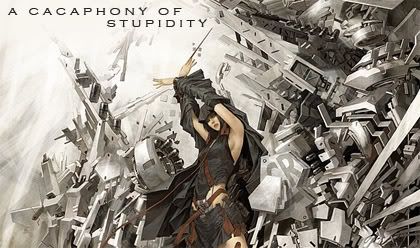 Let me state the obvious here: The Internet for me is a hotchpotch of more often than not, meaningless and pointless activity that needlessly complicated a person’s real life. My blog complicates my life because everyday, I end up wondering: “Was it all worth it?”
Let me state the obvious here: The Internet for me is a hotchpotch of more often than not, meaningless and pointless activity that needlessly complicated a person’s real life. My blog complicates my life because everyday, I end up wondering: “Was it all worth it?”
Seeing as you, my dear, teeny, tiny audience are caught in this swirling vortex of nothingness (hence designation of ‘Void’), I have no choice but to let you in on the latest in pointless endeavors. This time the madness comes from the digital art community! The players of this foolishness are the fairly popular anime-art haven DeviantArt and the anti-Anime league.
Anyone still remember that ol’ blog post about how the Manga/Anime style is hated for its un-anatomically correct figures and simplified, generic style? Well, apparently, that little argument has erupted into a full-blown controversy for many would-be Internet drama queens! (Reminds me of the good ol’ Robotech fandom days, good times) I now present to you:
 StudioMMG presents the latest, pointless and whiny Internet Drama: “The Anime Artist’s Retort, To the Anti-Anime Artist”!
StudioMMG presents the latest, pointless and whiny Internet Drama: “The Anime Artist’s Retort, To the Anti-Anime Artist”!DeviantArt has released a statement regarding this latest “controversy”.
“This topic was brought to DA from Damaged927 (Some guy's ID) from the collection of hate mail that we have been receiving. Therefore, because we are writers, we decided to write about it.
The original question from Damage927 was why do non-anime artists, have a prejudice to anime? Moreover, the collection of hate mail we received, always ask us why do anime artists “suck” or why “we get so much hype”? Therefore, the DAOS, in an effort to promote unity and love amongst all artists of all art forms, is going to try to make both sides understand each other...”
FlipMcGee posted this DeviantArt statement on the Conceptart.org forum, a place believed to hold the highest concentration of guys-and-gals-who-don’t-think-anime-artists-should-be-taken-seriously. I’m going to be taking responses from that forum, because #1, I trust the artistic opinions of those guys more than some of the DevArt admin people. Anyway, here’s the excerpt I was talking about:
“So why do Anti-Anime Artists act the way they do towards us Anime Artists?
Reason Four: ... Anti-Anime Artists are jealous of Anime Artists.
Reason Five: Fear of the unknown + Not the status quo = Anti-Anime Artists”
Full article found here: Issue #8: An Anime Artist's Retort, to the Anti-Anime Artist
I could easily go on and dissect every little detail about DeviantAer “official position” regarding the issue, but I’d rather not. In any case, this blog is not about declaring which style is better. It’s about more inane things. Like boobies.
 I found this on the forum. It was posted by a certain Kev Ferrera, a regular Conceptart.org forum poster. He had... a very disturbing thing to say about this whole Anime/Manga issue. (If you are a total otaku, you might've heard of what I'm talking about)
I found this on the forum. It was posted by a certain Kev Ferrera, a regular Conceptart.org forum poster. He had... a very disturbing thing to say about this whole Anime/Manga issue. (If you are a total otaku, you might've heard of what I'm talking about)Disclaimer: There are no known sources to back up these insane claims. Read all the way to the end to get to the bottom of this. This post is in no way intended to offend anybody, apart from your average otaku.
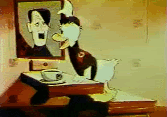 “The fact is, Manga was an Axis creation during World War II. Hitler and Goering were looking for a way to spread the Nazi message in a more populist form and both being great fans of Disney (believe it or not) they engaged their culture ministry to obtain some cartoon artists in Germany to create a popular style to use in propaganda posters. The German artists failed to live up to Hitler's wishes (Hitler having been an artist himself) so Hitler essentially outsourced the creation of these propaganda cartoons to Japan. Hirohito was glad to oblige, formed a huge studio of Japans best cartoonists, and this is why Manga came out of Japan.
“The fact is, Manga was an Axis creation during World War II. Hitler and Goering were looking for a way to spread the Nazi message in a more populist form and both being great fans of Disney (believe it or not) they engaged their culture ministry to obtain some cartoon artists in Germany to create a popular style to use in propaganda posters. The German artists failed to live up to Hitler's wishes (Hitler having been an artist himself) so Hitler essentially outsourced the creation of these propaganda cartoons to Japan. Hirohito was glad to oblige, formed a huge studio of Japans best cartoonists, and this is why Manga came out of Japan.Quite a bit of early Manga had hidden swastikas in the hair of the characters as secret code demonstrating its origin. Of course very few nowadays know the origins of Manga, so many draw the hair without the swastikas.
One of the reasons so few know about the origins of manga is because the main studio producing the propaganda was destroyed in the first atomic bomb blast. (It was right near the Nissan steel plant, which produced war material and had not yet started making cars, which I think first happened in the late 1950s or early 60s)
Anyhow, before anybody defends Manga too strongly, you should know its origins in Nazi propaganda. Its design was strictly for the purposes of fooling the unwitting. Unfortunately, it has found some degree of success lately, which I think demonstrates the resurgence of a certain ideology in the world.”
My thoughts:
As usual, people quickly rushed to argue at the insanity of this article. Kev is a highly respected member of the Conceptart community, but some point out that this post was just off-the-wall crazy. Which it is. People argued tirelessly about the origins of the Swastika symbol, etc. Understandable.
A member by the name of Mambo tries to reason with this, “…Modern manga has really nothing to do with the Nazi ideology despite it's roots as a propaganda tool. The Mitsubishi corporation was part of the Japanese war machine - producing fighter planes for Japan (the famous Japanese 'zero' fighter)... but Mitsubishi of today certainly has no links to a Nazi ideology. Why would manga be any different?”
And Kev responds:
“mambo, you're missing the point. Manga is still effective as a tool for corrupting minds, just as it was intended. It is not devoid of all nazi content.
Just think about how racially similar all the charcters are, same eyes, same nose, same hair, etc... Its amazingly generic, just like the eugenics projects of the Nazis.
That's the problem with it. The message lives on in the style.”
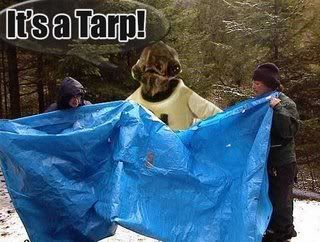 My thoughts:
My thoughts:Of course, people fall for the trap, and respond with varying degrees of seriousness. Can mambo can play along with this madness? He ask Kev:
1) Who exactly is behind this dastardly plan to corrupt the minds of youth?
2) Why would they be corrupting them and to what end?
3) How can I get in on it? Put me down for the corruption of 16 year old cheerleaders with 36DD breasts.
4) Do they have a secret manga-nazi handshake?
Kev quickly retors:
If you don't understand that the creation of a generic set of facial characteristics is directly tied to the Nazi ideology of racial purity, then I really can't help you.
Maybe you look like a Manga character already, so it doesn't bother you. But where does that leave everybody else? This is classic under-the-radar propaganda. Those who are already indoctrinated will not be able to see it.
 Propaganda is not "active measures". It is by nature "under the radar". If people know its propaganda, it doesn't work.
Propaganda is not "active measures". It is by nature "under the radar". If people know its propaganda, it doesn't work.The people behind the manga phenomenon are the corporate hegemony, which is borderless and worldwide. If you study such things as how the Nazi empire was financed, you come across such companies as IG Farben and Thiessen Krupp. And when you see how they are tied in with the global economy you can see their influence.
And of course a dumbed-down consumer is always good for business. And if people seek to be homogeneous, much less variety of product needs to be produced, which of course saves factory expenses... You don't need to change the mold, just keep stamping out the same stuff. The same toys, the same television shows, the whole thing is about speedy broadcast of this "be generic" ideology. And the international banking cartels and their subsidiary corporations easily retain power, if all everybody seeks to do is conform.
 The whole thing gets very complicated. But conformism to a fantasy racial purity that also happens to be childlike (indoctrinating the people into infantilism and helplessness) is very much the whole idea.
The whole thing gets very complicated. But conformism to a fantasy racial purity that also happens to be childlike (indoctrinating the people into infantilism and helplessness) is very much the whole idea.Don't keep the people down... have the people keep themselves down. Simple.”
My thoughts:
Interesting. Sort of reminds me of the current generation of Robotech fans and their blind devotion to the current administration. Notice nobody speaks out against Harmony Gold’s admin anymore? Everybody on Robotech.com just a faceless fan trying to get into the Officer’s Lounge. Okay, nevermind. I'm starting to sound as insane as what Kev is proposing here (Although I do worry about this fan that goes by the name of ‘Tommunist’). Anyway, if you think I sound whacked, keep reading this thread. If you can stomach it.
Kev:
“If you want to promote racial eugenics through nazi-manga propaganda, hey, its a free country.
But you should know that manga art is intrinsically corrupt and anti-humane and promotes your own conformity to a corporate system that seeks to dominate your mind and keep you infantilized. Just keep that idea in the back of your mind as you slavishly copy the elements of manga style instead of developing your own artistic personality and gifts.
A lot of the original surviving documents passed between Himmler and Hirohito's propaganda staff about the creation of Manga can be found on certain usenet groups. (Which I can't find -ed)
The last book I saw on the topic was in special collections at Yale University Library. It was just really a binder, 4 ring, leather bound, falling apart, all written in German. It had some of the working papers of the German cartoonists. cut out and put in plastic sheaths (which was so old it was rock hard and so brown you could barely see the images beneath it) At the end there was some Japanese documents that had been translated into German.
I wish I could be more specific as to the location of more of this material. I lot of the guys on the usenet spy networks had a lot to say on the topic (not all of which I believed, of course)”
My thoughts:
Alright. If you are wondering what the heck was all of this about, don't worry. I'm as confused as anyone. Anid Maro, another forum-goer, takes this all pretty well despite the lack of compelling evidence and responds “…I will continue to treat this discussion as a plaything for my personal amusement”.
Hahaha! Oh well, lets close this one. Kev, if you please:
“..Just to clarify, just about everything I've written on this thread is just pure fun silliness. It was prompted by Flip McGee's first post which linked to an article which proclaimed anti-manga folk (who I later joked were also called Mangacists) were somehow jealous of manga and were failing to appreciate its qualities because it was outside of their cultural frame of reference.
Now, one either engages with these kinds of "arguments" or one simply transcends them with more absurdity. I chose the latter.
I do have personal artistic differences with certain aspects of manga/anime/ whateverthehelltheretentiveaficianadoswanttocallitsotheycanfeelsuperior that I would tend to categorize as stylistic eccentricities that are contrary to observable reality, the endless repetition of which has resulted in a tumult of visual clichés cascading into world culture. I have a problem with that tumult of visual falsity.
 I do think art reflects character and affects character and since I do prefer idiosyncratic people to homogenized automatons, I would wish that artists would be more personal aesthetically rather than conform to a mass styles. (Not that I don't find hieroglyphs, for instance, wonderful.)
I do think art reflects character and affects character and since I do prefer idiosyncratic people to homogenized automatons, I would wish that artists would be more personal aesthetically rather than conform to a mass styles. (Not that I don't find hieroglyphs, for instance, wonderful.)Then again, I have really enjoyed some of the animated movies I have seen in this style. I do not think people who are into Manga are necessarily losers.”
My thoughts:
You have to understand, this debate is a lot deeper than we all think. Anti-anime advocates, who sometimes think they are better than everyone else, constantly whine about this and that, while Pro-Anime art advocates, who think they are better than everyone else, keep going at it as well. There is no victor.
Kev is just showing us the absurdity of it all. (He has been advocating people to adopt their own visual style and not cling too much to anime, and I tell you THIS IS TRUE if you want to be a serious artist) In the end though, the debate is ultimately as pointless as debating whether Koreans are out to take over the Robotech franchise. If you want to express yourself in the anime/manga-visual style, then I ain't gonna be your mama and talk you out of it. I happen to love the anime medium. You know why, Void.
But the thing is with Kev's absurd conspiracy theory is that they're fun. And if you don't see the inherent joy in having a moment of senseless, fairly insensitive, and stupid fun, then get out of the internet, fast - because inconsiderate jerks lurk around every corner, drama queen. I know because I was all of em'.
 If you're one of those jokers who can't take a joke, then get a sense of humor, will ya? I still remember a bunch of kooks complaining about this April Fool's Joke posted by a blogger named Darkwater. He posted on his ol' blog about a company called Harmony Gold and that their offices burned down!
If you're one of those jokers who can't take a joke, then get a sense of humor, will ya? I still remember a bunch of kooks complaining about this April Fool's Joke posted by a blogger named Darkwater. He posted on his ol' blog about a company called Harmony Gold and that their offices burned down!The joke ran its course, but you know what? Two years later, the topic managed to get brought up on some obscure forum, and they started bashing Darkwater for being an insensitive prick - that it was way out of line. Below is the actual image posted by Darkwater on his blog on April 1st:
 Do you believe this is true? (If the
Do you believe this is true? (If theanswer is yes, congratulations! Good for you! )
Now, go sue Coke for making you fat!
Anyway, I may have just derailed my own thread. Lets get back to the topic on hand. Which was... wait... What the hell was the topic?! Sheesh!
Well, if you can still stomach more of this post's absurdity, then please, I order you to watch this World War II cartoon relic. Another disclaimer: You may not look at Donald Duck the same again.
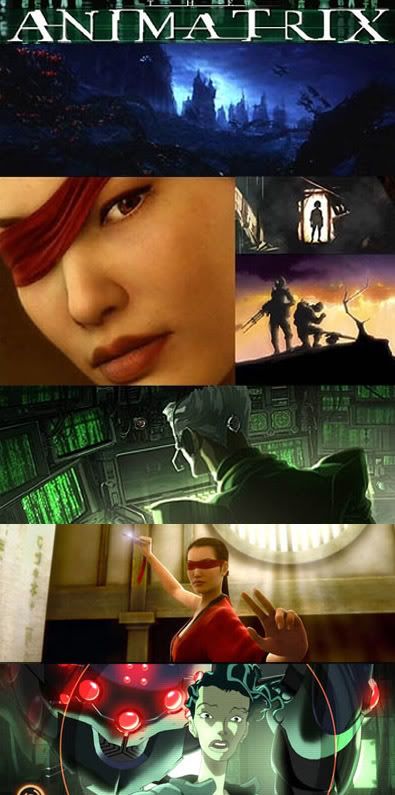
Just when you thought I had run out of things to say about the one and only...
This is one of my final pieces for the ‘Beautiful Mind’ feature, starring Mr. Peter Chung. In the past, I have talked about the process in which Mr. Chung went through in developing his baby, Æon Flux. I will continue that with a brief look at his involvement in the production of the Animatrix short, ‘Matriculated’, one of the most under appreciated pieces of animation since Black Cauldron (Oh wait, that one sucked). Irreverent references aside, Mr. Chung’s involvement in the now-dead Matrix franchise proved to be quite interesting. Here’s what he had to say from some old interview in various American Otaku rags.
The story of Chung’s involvement in Animatrix:
In April 2001, I heard about the project through Madhouse Studios, as they were starting production on their two episodes, Program and World Record. I found out that some of the top Japanese animation directors were making short films based in the Matrix universe, and I wanted to have a chance to get involved. I called a producer at Warner Brothers Animation, who conveyed my interest to the Wachowskis. I was told that all the directors had already been chosen, and there wasn't a slot open for me. I tried to forget about it, but a couple of months later, I got a call telling me that one of the original directors had left the project and the brothers wanted to get me in. So I was in.
Interviewer: What are some of the fundamentals that inform your style and how have those dynamics been expanded over the years?
Chung: "The two fundamental approaches are clarity and expressive design. This is in contrast to artists who place greater emphasis on atmosphere, lighting and texture. My writing is concerned with complex characters and moral ambiguity, so I try to keep the visual representation clean. Complicated stories told in a complicated style would only end up being confusing. The descriptive approach is favored by artists like Moebius, Herge and Darrow and by filmmakers like Kubrick, Hitchcock and Tati, all of who I'd say are important influences."
You know, I gotta check up on those. Maybe this 'descriptive approach' to storytelling is something I really got to get into. Otherwise, I'd probably end up writing an overly complex story that shift back and forth in time, all the while telling a complex psychological story about a man and his favorite little toy. Or equally as confusing and pointless.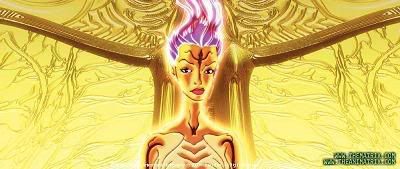 Interviewer: What kind of creative tension is there when you step into someone else's creative universe? Did the notion inspire you on any particular level, or were there difficulties in realizing a particular vision against the backdrop of established ideas?
Interviewer: What kind of creative tension is there when you step into someone else's creative universe? Did the notion inspire you on any particular level, or were there difficulties in realizing a particular vision against the backdrop of established ideas?
Chung: "In the case of The Matrix, there was a good deal of stylistic rapport going in, Some people have told me that seeing The Matrix made them think of a live-action Æon Flux Movie. The setup of the Matrix universe implies a lot of situations, and I actually wrote several possible scenarios before settling on Matriculated. One idea that intrigued me was the ability to manipulate virtual time - or the expansion of the "bullet time" concept. Another was the effect on personal trust in a world where anyone you encounter might be an agent.."
My thoughts: Incredible. What fascinated me most of Mr. Chung's response is the mention of the 'implied situations' in a story. Yeah, there goes that whole 'Multi-layered' narrative crap I keep yapping about. That's also one of the reason the first Matrix was such a blast, and also why so many of those 'unofficial' Matrix Guide Books came out. When you have that audience participation, for geeks to come up with there own insane interpretations, and to actually put up a book about it, then you've got one hell of a property. Robotech also has this gift, of a multi-layered universe, but of course, that potential was squandered for more than twenty years with people telling and retelling pointless events in certain story arcs. Interviewer: What advice can you give to all of those aspiring animators out there?
Interviewer: What advice can you give to all of those aspiring animators out there?
Chung: I'm guess that those reading this interview wuold be inclined under the Japanese influence. My advice is to look at and study all formes and style of animation, as well as the great live-action filmmakers. Remember that animation, as its root, is not tied to a particular style of dawing or character design. Study and practice the basics, and you'll be able to apply them to any medium and any style.
My thoughts: Hence the blog. Honestly, I wouldn't know the art of Dave Seeley, Craig Mullins, Luis Melo and so many more inspiring artists without the aid of this place. Thank you blogger! And thank you Peter Chung!
And now I shall talk again again about Æon Flux. Woohoo! Don't worry, I really learned a lot typing this. You might too. But before that though, lets take a break and watch this short, yet awesome trailer for an old videogame animated by none other than Mr. Chung himself. It's senseless and intense and ultimately cool. In my opinion.
Referenced from mag:
One of the interviews glossed over Chung’s reaction to the loss of popularity of Æon Flux after it became a series. The following quotes from Mr. Chung simply confirm the fact that American television, for some reason, simply isn’t a place for anybody to realize their true creative vision. Like any industry that continues to exist today, it is fueled by greed, ignorance and ‘design by committee’ crap. “When Æon Flux was on Liquid TV, it was being done very cheaply and therefore with a great deal of freedom from network scrutiny. Once MTV began investing in earnest, I came under a lot more pressure to tone down the content, for the sake of the censors, and partly to appease the sponsors. Even so, the series attracted a new fanbase which actually preferred the later episodes.
“When Æon Flux was on Liquid TV, it was being done very cheaply and therefore with a great deal of freedom from network scrutiny. Once MTV began investing in earnest, I came under a lot more pressure to tone down the content, for the sake of the censors, and partly to appease the sponsors. Even so, the series attracted a new fanbase which actually preferred the later episodes.
Although the production period was arduous in the extreme, in the end, yes. I took it on as a challenge to expand the range of the animated series as a medium for personal expression. And I think we succeeded in most instances. I'm especially pleased with having created a truly complex main character in Aeon herself. I also realized that serial television is not the outlet for the kind of animation I want to do. There are just too many compromises one is forced to make.”
It’s interesting to note that another ‘controversial’ animator that went through the hellish waters of network television was John Kricfalusi of Ren & Stimpy fame. His work had to constantly be toned down to please watchdogs, execs, etc. (Of course, a lot of other folks go through this, but I think I’ve made my point) An interesting about John K. was that for despite Nickelodeon ending up with a ‘distilled’ version of his show, he did mention that he was able to at least get one or two elements to the show that were part of his original vision. That offered him, and for a lot of artists some satisfaction in the tedious process of their line of work, especially to Mr. Chung.
A few years later IGN.com, conducted an interview, which dealt with the re-release of Æon Flux. It’s an interesting retrospective look at the show, and offers some interesting insight. You might not care, but I do.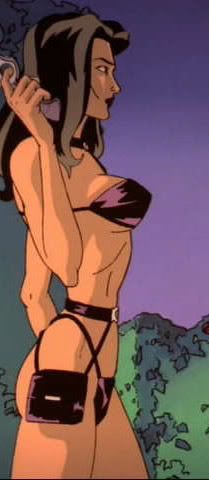 How tough is it to relinquish control over something like this you created and is now in the hands of other people?
How tough is it to relinquish control over something like this you created and is now in the hands of other people?
Chung: “Well, you kind of just have to accept the way that it is, which is if you want your show to be on the air… when you develop a show for a network, the deal is that they own it. You know that at the outset, and that means that they could go and take the character and do what they want with it later on - they could do an animated Aeon Flux on Nickelodeon, 'Aeon Flux: The Baby Years', anything they want. But it is a trade-off, so you get your work exposed to a big audience on MTV, and in exchange you have to give up some control.”
My thoughts: Aside from these legalities, Mr. Chung was asked other issues he had to face during production of his now toned-down series. And how these issues actually became opportunities for storytelling. Again, we dwell in the land of the fickle censors.
Chung: “… In some cases I think that the episodes do suffer; you should listen to some of the other commentaries, where we talk about that a little bit, where something that we had wanted to do.
The standards and practices people wouldn't let us, like for example portray a character's death that was crucial to the story and not being able to really show it. But unlike a lot of animators that I know, I never really made that too much of an issue, because I've worked in TV animation a long time.
I think that having this outlet to begin with is a great gift, so I tried to take advantage of all of the things that I could do and try to find ways of getting around them that are often more interesting than outright showing something. Like sexual events (laughs), let's put it that way; obviously you can't just show outright explicit sex, and I'm not sure that I would want to either, but getting that element in there in a more suggestive way is something that I think we managed to do and do in an original and provocative way…”
My thoughts: Would that make the world better? To have the airwaves were filled with cartoons dealing with mature issues without the sugar-coating? Ah, I don’t think it will ever happen in America. The laws are too strict. Although I do remember that Spawn cartoon... That was okay, I guess. Although I did hear people saying that the show wasn’t all too successful in that aspect. Anyway, I’m derailing this…
Chung: ”The whole show works on a metaphorical level, and that's really what I would want to stress - don't take any of this literally, please. There's a lot of discussion on the part of fans, you know, what is the back story, and how can she keep dying and coming back. They want some kind of literal, logical explanation, and the story doesn't really work on that level, and I don't think it should, being an animated show. Animation in itself is not a realistic medium, and I'm not interested in trying to duplicate reality but more like a projection of internal states - that to me is what it's all about. It's all about mixing the internal with the external, the subjective with the physical, sop you see the projections of people's minds take physical form, and they interact with them, and that was really my approach to it.”
My thoughts: This leads to an interesting viewpoint of Mr. Chung about how people try to develop these almost “unnecessary” back-stories to characters and events of a particular show. More on this later.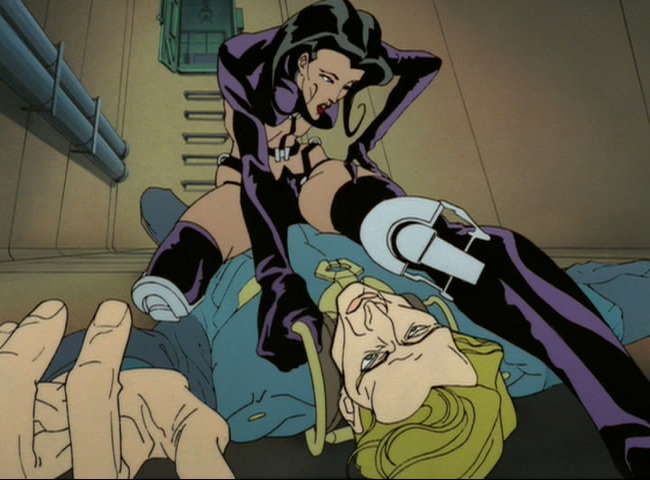 IGN then asked Mr. Chung about whether or not he felt he was able to realize his creative vision more fully in his later animation projects. Did he??
IGN then asked Mr. Chung about whether or not he felt he was able to realize his creative vision more fully in his later animation projects. Did he??
Chung: “Yeah, in some instances. Like The Matrix [short "Matriculated"] for example, the Wachowskis had been fans of Aeon Flux and so when I approached them about doing an episode of The Animatrix, they really wanted to be involved, and I get a lot of requests from ad agencies where they want 'that style'. (The multi-layered narrative flow, the metaphorical wackiness –ed)
“At the same time, maybe in a few cases it's also been a liability, because I think that Aeon Flux is very much perceived as a cult show with a very specialized audience, even though I never set out to make a cult show. I mean, I thought I was doing something for everybody. But you don't really have control over that (laughs)...”
My thoughts: See my definition of a ‘cult show’, or why I toss it around like an idiot below this post.
Chung: “…but most studios will say, "we really like the way you do things and we like your design style and directorial style, but we'd like you to apply it to Batman" or something like that. But I'm not interested in making animated films because I need to keep making animated films. I don't even like the process of doing animation, because it's a laborious and painstaking process.
To me it's all about the content, so when somebody says, "we need you to apply Aeon Flux style to this story idea," I kind of go "that's not the point." I developed the style so it would tell these kinds of stories in an effective way, not the other way around. I'm not coming up with a directorial style that you can just kind of apply to a conventional story.
I’m trying to wrap my head around what Mr. Chung’s saying. Can you apply ‘audience participative’ style storytelling to a clichéd story? I’ll leave that answer to the Void. Who doesn’t give a crap. And with that, I end that interview and I also end this part in the on-going and fairly wonderful-yet-for-some-of-you-it-may-be-tedious saga of PETER CHUNG: BEAUTIFUL MIND!
I’m gonna take my sweet time with the final analysis for this feature. I’m now wondering what else can I say in this wretched blog… Perhaps a feature on… ah! I know! I'll say that Binchou-tan is super cute!! Kawaii! Now watch this old featurette. It's an oldie, but it sure looks nice. And, its sort of related to today's topic.
Addendum:
My "wrong view" on what makes a Cult Show:
Here’s how I define ‘cult shows’. A lot of shows marketed to the mainstream back in the day are now considered “cult” shows. A prime example is Robotech, which supposedly was a big, big thing once upon a time. Carl Macek introduced three different anime series and repackaged it to Robotech for American audiences. It was big, a kids liked it. Nowadays, you can only pray people actually give a damn about the franchise. With so many modern day distractions, the show has essentially been forgotten by generations of anime enthusiasts. Only the hardest of the hardcore give a flying bleep about Sentinels or something. Robotech has then become the penultimate example of what I would call a ‘cult show’ with a ‘specialized audience’. Not many people give a f**k about what Commander Leonard has for dinner, I’ll tell you that. (I care!)

